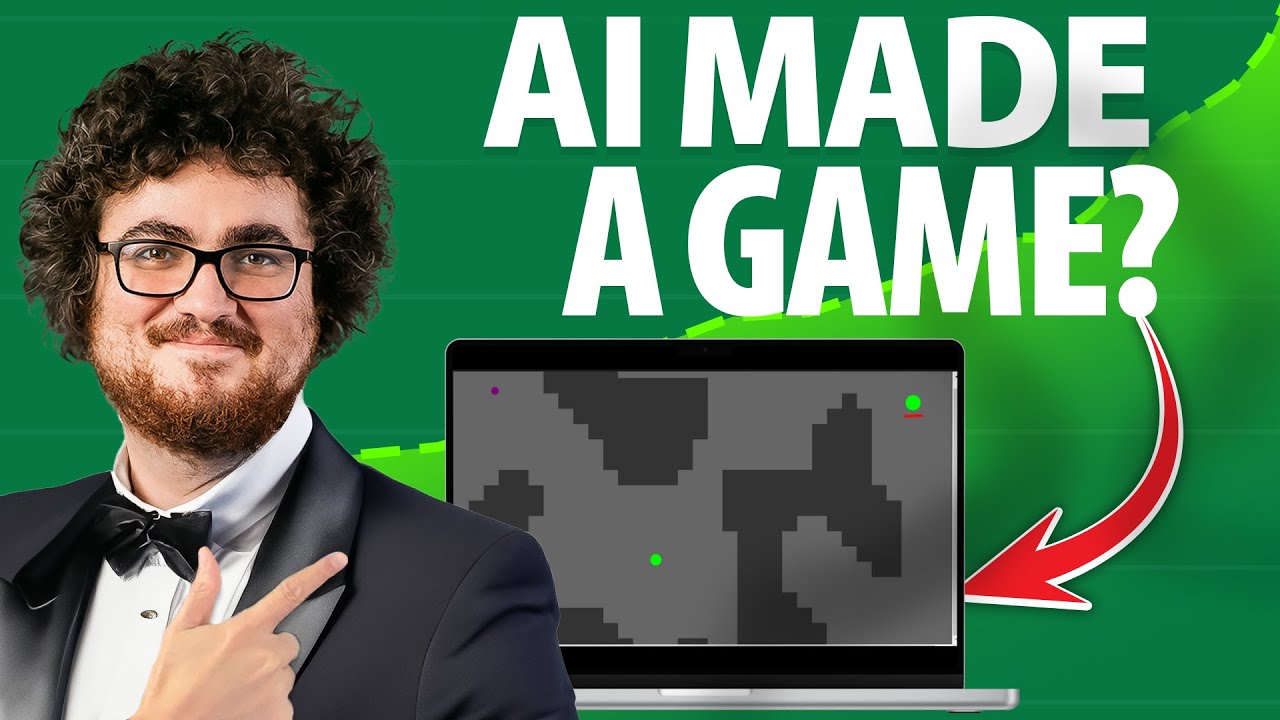AI coding tools have revolutionized game development, making it accessible to everyone, including those without coding expertise. With tools like Bolt.New, Cursor, Cline, and WindSurf, you can now create entire video games in under 15 minutes. This article takes you through a step-by-step demonstration of using AI coding software to effortlessly develop games, from random cave generation to shooting mechanics and health bars. Learn how to leverage Cursor’s directory for custom AI prompts tailored to your tech stack and explore the possibilities of free game development using Unity up to $200,000 in revenue.
The video “Bolt.New Made Me a Video Game – And It’s Absolutely Wild” sheds light on the AI-powered game creation revolution, showcasing how AI tools are changing the landscape of software development. Dive into the world of game development with AI and discover how to actively engage with AI tools to learn new tech stacks. Learn valuable insights on implementing features like random cave generation, shooting mechanics, monsters, loot, and health bars using AI. Watch the video for a fascinating journey into the realm of AI-generated games and game programming powered by artificial intelligence.
Overview of AI Coding Tools in Game Development
With the rapid advancement of technology, AI is now capable of creating entire video games in under 15 minutes. Tools like Bolt.New, Cursor, Cline, and WindSurf are revolutionizing game development by harnessing the power of AI. These AI coding software tools are changing the game development landscape, allowing developers to bring their ideas to life effortlessly. In this comprehensive guide, we will explore the use of AI coding software in developing games and the impact it has on the gaming industry.
Step-by-Step Guide on Using AI Coding Software for Game Development
In this section, we will provide a step-by-step demonstration of creating a randomly generated cave shooting game using Bolt.New. We will cover how to implement features like random cave generation, shooting mechanics, monsters, loot, and health bars using AI. By following this guide, you will learn how to leverage AI coding software to streamline the game development process and create engaging game experiences for players.
Comparison of AI Coding Tools for Game Development
Discover the differences between AI coding tools like Bolt, Cursor, Cline, and WindSurf. This section will provide insights into the unique features of each tool and tips on how to leverage Cursor’s directory for custom AI prompts tailored to your specific tech stack. Understanding the strengths and limitations of each AI coding tool will help you choose the right tool for your game development needs.

Benefits of Using AI Coding Tools for Game Development
AI coding tools are making game development accessible to everyone, including non-coding experts. By using Unity for free game development up to $200,000 in revenue, developers can create high-quality games without the barrier of coding expertise. The insights gained from using AI coding tools can transform the game development process and empower developers to unlock their creative potential.
Engaging with AI Tools to Learn New Tech Stacks
Active engagement with AI tools is key to learning new tech stacks and staying current in the ever-evolving gaming industry. By exploring the possibilities of AI-powered game creation, developers can expand their skill sets and push the boundaries of game development. The revolution in the gaming industry with AI-powered tools opens up new opportunities for developers to create innovative and immersive gaming experiences.
Impact of AI on Software Development and Game Creation
AI is changing the landscape of software development by enabling developers to create complex games using simple AI algorithms. By discussing the creation of a game using AI in this context, developers can gain valuable insights into the potential of AI in game creation. The impact of AI on software development and game creation is profound, paving the way for a new era of innovative game development.
Enhancing Game Development with AI
Suggestions for enhancing game development with AI include adding sparkle effects for rare items and leveraging the Unity platform for game development. Plans to create a mobile game using AI coding tools can revolutionize the gaming experience for players. By integrating AI into game development, developers can unlock new creative possibilities and push the boundaries of game design.
Promoting Hands-On Learning in Coding and Game Development
Emphasizing learning by doing in coding and game development can accelerate skill development and push innovation in the gaming industry. By immersing yourself in coding challenges and game development projects, you can enhance your skills and gain practical experience in building games. References to learning languages through immersion can further enhance your proficiency in game development and coding.
Encouraging Exploration through Video Content
Encouraging viewers to watch a video on creating a content generator using Bolt can inspire creativity and exploration in AI-powered game development. By exploring new tools and techniques in AI game development, developers can expand their skill sets and create innovative game experiences. Encouraging exploration through video content can spark new ideas and drive innovation in the gaming industry.
In conclusion, AI coding tools are transforming the game development landscape, making game development more accessible and efficient. By leveraging tools like Bolt.New, Cursor, Cline, and WindSurf, developers can create high-quality games in a fraction of the time it would traditionally take. The future of game development is bright with the possibilities of AI-powered game creation, and developers are encouraged to explore and experiment with these cutting-edge tools to push the boundaries of game design.
